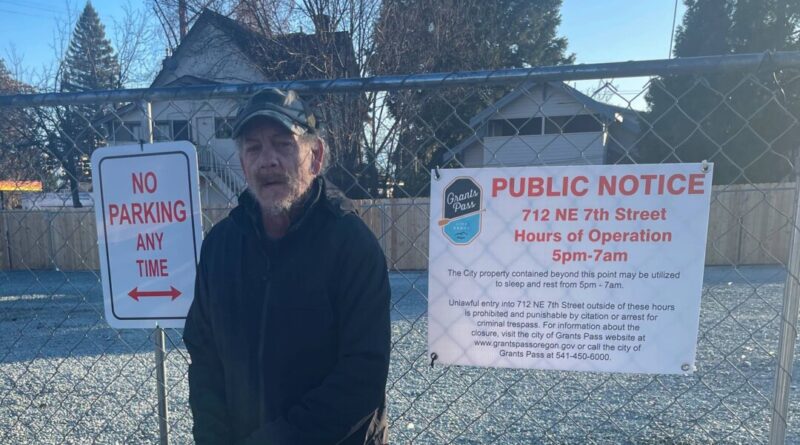Lawsuit Reignites Focus on Homeless Camping Issues in Oregon City
In June 2024, the Supreme Court confirmed a local ordinance in Grants Pass, Oregon that prohibits public camping.
An advocacy group has initiated a lawsuit against an Oregon city concerning its policies on public camping, following the city’s victory in a U.S. Supreme Court decision that permits municipalities to implement bans on homeless camping.
The city provides one overnight shelter for adults known as the Gospel Rescue Mission. Some individuals experiencing homelessness choose not to stay there due to requirements for regular attendance at religious services and prohibitions against smoking, alcohol, illegal drugs, and pets, as detailed in the complaint.
On January 7, the City Council voted to close the larger of two city-run campsites where homeless individuals were allowed to stay and to impose restrictions on the smaller site. City officials claimed the larger campsite had become an unsanitary nuisance. Construction of a water treatment facility is slated to begin at this larger location in May.
The legal complaint asserts that both campsites are unsuitable for individuals with disabilities, including those who use mobility devices such as wheelchairs. These individuals “often find themselves struggling to navigate the uneven terrain, requiring assistance to traverse even short distances within the campsites.”
The smaller campsite operates from 5 p.m. to 7 a.m., after which campers are required to remove their belongings.
The lawsuit seeks a temporary restraining order to reverse the closure of the larger campsite and suspend the city’s restrictions on the smaller site’s hours.
Subsection 2 of this law mandates that “Any city or county law regulating sitting, lying, sleeping, or keeping warm and dry outdoors in public areas must be objectively reasonable concerning time, place, and manner for individuals experiencing homelessness.”
Subsection 4 permits a homeless individual to “file suit for injunctive or declaratory relief to contest the objective reasonableness of [such] a city or county law.”
The complaint contends the city is violating the law because the available camping space is deemed too limited.
The small area allocated for camping is “only sufficient to accommodate less than 20% of the tents belonging to individuals currently homeless in Grants Pass. For approximately 80% of the homeless population in Grants Pass, the city code now renders their existence and survival illegal due to their poverty and disabilities,” the complaint states.
Rather than establishing objectively reasonable regulations, “the city has opted to misuse its authority to recriminalize homelessness under the guise of time/place/manner restrictions,” the complaint argues.
The city “aims to make homelessness in Grants Pass so intolerable that individuals will seek shelter elsewhere,” the complaint claims. “Despite a significant number of elderly, sick, and disabled individuals on-site, the city’s stringent regulations were increased during winter, leaving hundreds without a legal means of survival.”
According to the complaint, the city “currently lacks a substantial plan to shelter or aid homeless individuals in finding housing. Individuals have no legal location to go.”
Jake Cornett serves as the executive director and CEO of Disability Rights Oregon.
The Epoch Times sought a comment from Mark Bartholomew, the interim city attorney for Grants Pass, but did not receive a response by the time of publication.





